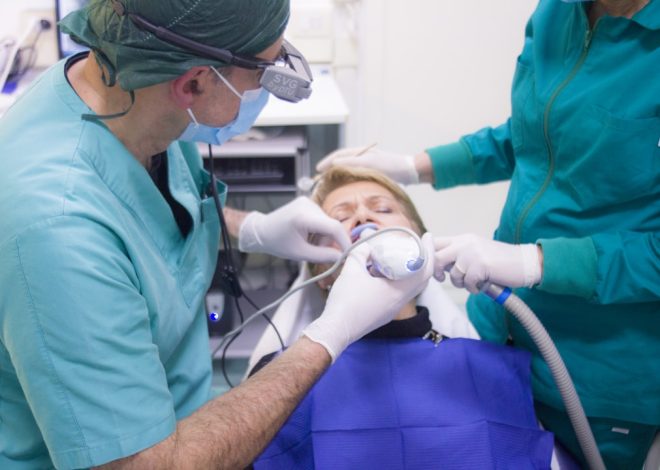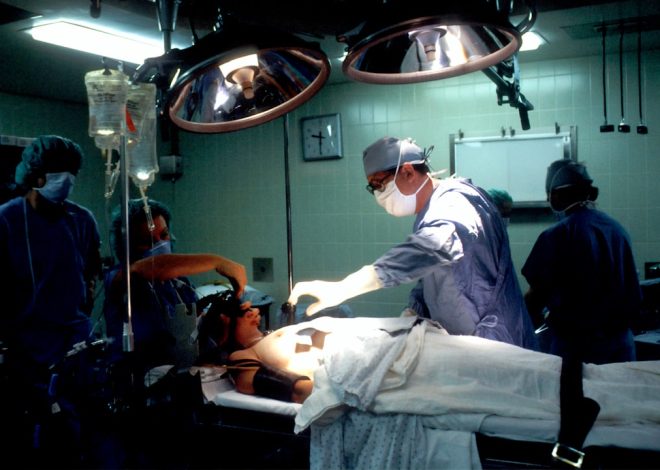
Free Dental Implants Offered to Low-Income Individuals
Dental implants are essential for restoring oral function and aesthetics. When tooth loss occurs due to injury, decay, or periodontal disease, it can significantly impact oral health and self-esteem. Implants offer a permanent solution by anchoring artificial teeth into the jawbone, providing stability and preventing bone loss while maintaining facial structure.
This restoration allows for proper chewing and speaking, enhancing confidence and quality of life. Designed for longevity, dental implants can last a lifetime with appropriate care. Unlike traditional dentures or bridges, they do not depend on adjacent teeth for support, preserving natural tooth structure.
This makes implants a reliable and effective option for oral health restoration. Dental implants represent a crucial treatment option for individuals seeking to improve oral health, restore their smile, and maintain overall well-being. They offer a comprehensive solution to tooth loss, addressing both functional and aesthetic concerns while providing long-term benefits for oral and general health.
Key Takeaways
- Dental implants are important for restoring oral health, function, and aesthetics.
- Low-income individuals often face significant barriers to accessing dental care, leading to poor oral health outcomes.
- The cost of dental implants can be prohibitive for low-income individuals, leading to untreated dental issues.
- Free dental implant programs can provide life-changing benefits for low-income individuals, improving their oral health and overall well-being.
- Qualifying for free dental implants often involves demonstrating financial need and meeting specific eligibility criteria.
The Impact of Dental Health on Low-Income Individuals
Impact on Overall Well-being
These oral health issues can have a profound impact on overall well-being, affecting the ability to eat, speak, and maintain proper nutrition. Poor dental health can lead to chronic pain, infections, and even contribute to systemic health problems such as diabetes and heart disease.
Effects on Self-Esteem and Mental Well-being
The impact of poor dental health on low-income individuals extends beyond physical health, affecting their self-esteem and mental well-being. Missing or damaged teeth can cause embarrassment and social anxiety, leading to decreased confidence and opportunities in both personal and professional settings.
Breaking the Cycle of Poverty and Inequality
Addressing the dental health needs of low-income individuals, including providing access to dental implants, is crucial for improving their overall quality of life. By doing so, we can break the cycle of oral health issues that perpetuate the cycle of poverty and inequality.
Understanding the Cost of Dental Implants
The cost of dental implants can vary depending on several factors, including the number of implants needed, the complexity of the procedure, and the geographic location of the dental practice. On average, the cost of a single dental implant can range from $1,000 to $3,000, not including additional expenses such as consultations, imaging, and restoration (e., crowns or dentures). For individuals in need of multiple implants or additional procedures such as bone grafting or sinus lifts, the cost can quickly add up, making dental implants unaffordable for many low-income individuals.
It’s important to note that while the initial cost of dental implants may seem high, they are a long-term investment in one’s oral health and overall well-being. Unlike other tooth replacement options that may require frequent repairs or replacements, dental implants are designed to be durable and permanent. This means that over time, the cost of dental implants may be more cost-effective compared to alternative treatments.
However, for low-income individuals who are unable to afford the upfront cost of dental implants, finding affordable or free options is essential for addressing their oral health needs.
The Benefits of Free Dental Implants for Low-Income Individuals
| Benefits | Low-Income Individuals |
|---|---|
| Improved Oral Health | Access to necessary dental care |
| Enhanced Quality of Life | Ability to eat, speak, and smile with confidence |
| Prevention of Further Health Issues | Reduced risk of infections and other systemic health problems |
| Financial Relief | Avoidance of high out-of-pocket dental expenses |
Access to free dental implants can have a transformative impact on the lives of low-income individuals. By receiving free dental implants, individuals can regain their ability to eat and speak comfortably, improve their oral health, and restore their confidence and self-esteem. This can lead to improved overall well-being and quality of life.
Additionally, free dental implants can help prevent further oral health issues and complications that may arise from untreated missing teeth, such as bone loss and shifting of surrounding teeth. Furthermore, providing free dental implants to low-income individuals can help break the cycle of poverty and inequality by addressing their oral health needs. By restoring their ability to eat nutritious foods and present themselves confidently in social and professional settings, free dental implants can empower individuals to pursue opportunities for personal and professional growth.
This can have a positive ripple effect on their families and communities, contributing to overall social and economic well-being.
How to Qualify for Free Dental Implants
Qualifying for free dental implants typically involves meeting specific criteria set by organizations or programs offering pro bono dental services. These criteria may include demonstrating financial need by providing proof of low income or lack of access to dental insurance. Additionally, individuals may need to undergo a comprehensive dental evaluation to determine their eligibility for free dental implants based on their oral health needs.
In some cases, individuals may also need to provide documentation of their overall health status to ensure they are suitable candidates for dental implant surgery. This may involve undergoing medical screenings or obtaining clearance from healthcare providers. It’s important for individuals seeking free dental implants to research and reach out to local dental clinics, nonprofit organizations, or charitable foundations that offer pro bono dental services to inquire about their specific eligibility requirements.
Finding Free Dental Implant Programs

Exploring Educational Institutions
One potential avenue for finding free or low-cost dental implant programs is to reach out to local dental schools or teaching hospitals. These institutions often offer discounted or free dental implant services as part of their training programs, where students provide supervised treatment under the guidance of experienced faculty members.
Nonprofit Organizations and Charitable Foundations
Another valuable resource is nonprofit organizations and charitable foundations that focus on improving access to dental care for underserved populations. These organizations may have partnerships with dental professionals who volunteer their services or offer subsidized treatment options for low-income individuals in need of dental implants.
Government-Funded Healthcare Programs and Community Health Centers
Exploring government-funded healthcare programs or community health centers that provide comprehensive dental services to low-income individuals may also lead to opportunities for free or reduced-cost dental implants. It is essential for individuals to be proactive in seeking out these resources and advocating for their oral health needs.
The Future of Access to Dental Implants for Low-Income Individuals
The future of access to dental implants for low-income individuals holds promise as awareness grows about the importance of oral health equity. Efforts to expand access to affordable and free dental care are gaining momentum through advocacy, policy initiatives, and public-private partnerships. As more attention is drawn to the impact of oral health on overall well-being, there is increasing recognition of the need to address disparities in access to dental implants and other essential treatments.
Innovations in technology and treatment approaches are also contributing to the potential for more accessible and cost-effective options for dental implants in the future. Research and development in materials and techniques used in implant dentistry may lead to advancements that reduce the overall cost of treatment while maintaining high-quality outcomes. Furthermore, continued collaboration between healthcare providers, policymakers, philanthropic organizations, and community advocates is essential for creating sustainable solutions that address the oral health needs of low-income individuals.
By working together to develop and support initiatives that provide free or affordable dental implants, there is potential to improve the lives of countless individuals and contribute to greater equity in oral healthcare access.
If you are interested in learning more about free dental implants for low-income individuals, you may also want to check out this article on understanding Doberman health and common issues. This article provides valuable information on how to care for your pet’s dental health, which can be just as important as your own.
FAQs
What are dental implants?
Dental implants are artificial tooth roots that are placed into the jaw to hold a replacement tooth or bridge. They are a popular and effective long-term solution for people who suffer from missing teeth, failing teeth, or chronic dental problems.
What is the cost of dental implants?
The cost of dental implants can vary depending on the location, the dentist, and the specific needs of the patient. On average, the cost of a single dental implant can range from $1,000 to $3,000. This cost does not include additional procedures such as bone grafting or sinus lifts, which can further increase the overall cost.
Are there free dental implants for low-income individuals?
There are some programs and organizations that offer free or low-cost dental implants for low-income individuals. These programs are often provided by dental schools, non-profit organizations, or through government assistance programs. It’s important to research and inquire about specific eligibility requirements and availability in your area.
How can I find free dental implants for low-income individuals?
To find free or low-cost dental implants for low-income individuals, you can start by contacting local dental schools, community health centers, or non-profit organizations that specialize in providing dental care to underserved populations. Additionally, you can inquire about government assistance programs or grants that may be available for dental implant procedures.
What are the eligibility requirements for free dental implants for low-income individuals?
Eligibility requirements for free dental implants for low-income individuals can vary depending on the specific program or organization offering the services. Common eligibility criteria may include income level, residency status, and specific dental health needs. It’s important to inquire directly with the provider to understand the specific requirements for their program.


